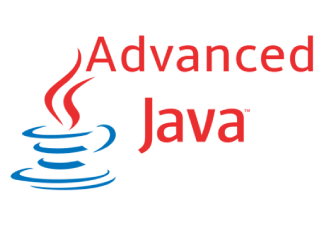Content
| Chapter | Name |
|---|---|
| 1 | About Training |
| 2 | Advanced Java Course Prerequisite |
| 3 | Advanced Java Training in Chennai – Course Objective |
| 4 | Advanced Java Classes Duration |
| 5 | Advanced Java Content Overview |
| 6 | JDBC |
| 7 | Servlets |
| 8 | JSP |

1. About Training
The course builds a strong understanding of JDBC Technology. It gives in to demonstrate why Servlets are the cornerstone of Java’s Web platform. It then shows how JSP is built on the Servlet architecture. Additionally, the class shows students how to use JSTL, custom tags and expression language to reduce Java code in Web pages while adding tremendous power and capability to those pages. The class culminates in an exploration of Java MVC frameworks like Struts at a high level.
This is not a class that focuses on theory. Participants will find the course is loaded with practical labs and simulations. After taking this class, developers will be able to build Web applications that perform well, are scalable, and that are easier to maintain.
2. Advanced Java Course Prerequisite
Basic Knowledge of Core Java is required. An understanding of Web technologies like HTML and HTTP is helpful.
3. Advanced Java Training in Chennai – Course Objective
Learn the fundamentals of JDBC and using the different interfaces in the JDBC API. Learn how to use Java servlets in the role of Web application control. Identify the options to state management in a Java Web application and understand the pros/cons of each. Understand how JSPs can help to separate Web logic and functionality from page layout. Explore how to make JSPs smaller and more powerful with JSTL, custom tags and expression language. Explore strategies in the exchange of data between Web pages (views) and business processing (model). Learn the meaning and importance of MVC
4. Advanced Java Classes Duration
- 60 Working days, daily one and half hour
5. Advanced Java Content Overview
6. JDBC
- Introduction to JDBC
- JDBC architecture
- java.sql Package
- Connection, Statement, ResultSet
- Prepared Statement
- Callable Statement
- Scrollable and Updatable ResultSet
- Batch Updates
- ResultSetMetaData
- Simple Transaction Management
- Four Levels of JDBC drivers, their pros & cons
- Features of JDBC 3.0/4.0
7. Servlets
- Need of Server side Programming
- Introduction to Servlets
- Servlet Life Cycle
- javax.servlet package
- ServletConfig, ServletContext, ServletResponse
- Supplying initialization parameters to Servlets
- Performing database operations in Servlets
- Include and forward mechanisms
- Applying filters to Servlets
- javax.servlet.http Package
- HttpServlet Life Cycle
- Http request methods GET vs POST
- HttpServletRequest, HttpServletResponse
- Dealing with Http headers & error codes
- Session Tracking, purpose
- Hidden form fields, Cookies
- Http Session, URL rewriting
- Event listeners
- Web application security
8. JSP
- Disadvantages of Servlets
- Introduction to JSP
- JSP Life Cycle
- Creating dynamic Web content with JSP
- Scripting elements
- Scriptlet
- Declaration
- Expression
- XML syntax for JSP elements
- JSP directives page, include and taglib
- JSP implicit objects
- JSP scopes
- Include and forward mechanism
- Using a Java bean in a JSP
- JSP Model 1 architecture
- JSP Model 2 (MVC) architecture
- Custom Tag Development
- Classic Tags, Simple Tags
- Error Handling in a JSP
- JSTL
- Expression Language
- Processing XML in a JSP, Get certification for Advanced Java Training in Chennai and Click Here for Hadoop Training.
